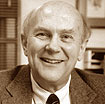Commentary on Mark 1:14-20
The text for the Third Sunday after Epiphany continues the dramatic action in the Gospel of Mark.
Without a nativity story we are “immediately” (Greek, euthus) (1:10) into the ministry of Jesus with the baptism of Jesus and the voice from heaven (1:9-11). The engagement with Satan in the wilderness (1:12-13) has set up the cosmic battle present throughout the Gospel of Mark. The battle will appear hidden as “the kingdom of God has come near” (1:15). God’s reign and rule is present in the person and work of Jesus of Nazareth as the battle is enjoined with the cosmic forces of evil.
As noted in our study in Working Preacher two weeks ago on Mark 1:4-11, the destiny of John and Jesus are linked together. As John is “arrested” (actually a better translation of the Greek word is “delivered up” ([Greek, paradidomi] the same word describing Jesus being “delivered up” to crucifixion throughout the Gospel of Mark). Jesus is not just “saying” (NRSV) the announcement we now hear, but “proclaiming” (Greek, karusso) the good news of the kingdom. Once again the NRSV translation misses the power of the Greek verb “to proclaim” by translating with the word “saying.” Jesus’ words are proclaiming that God’s time is not only near but is here. God’s kingly reign and rule is breaking in presently in the person and work of Jesus of Nazareth (1:14).
Jesus’ call of engagement in God’s rule is present in two imperatives. The first is a call “to repent” expresses immediacy at a point in time; it is time to turn around in response to the call of discipleship. This call is followed up with a second imperative “to believe,” which expresses a continuing response to the obedience of following. The object of believing is “the good news” of God’s reign present in the life, death and resurrection of Jesus of Nazareth (1:15).
Examples of the immediacy of Jesus’ call to turn around and believe are present in the calling of Simon, Andrew, James and John. The scene is the shore of the Sea of Galilee, a lake about 12 miles long and 8 miles at its widest point. The lake is harp-shaped and also known by the name, Chinnereth, from the Hebrew word for a harp-like instrument.
Perhaps it is a day like any other day in the life of those who fish these sometimes treacherous waters. Wind storms come up quickly as a Northwester blows in from the Mediterranean Sea and over the hill country that surrounds the northwestern shore of the lake. Suddenly and without warning the boats are in danger as the waves threaten to overpower the boats. A story in Mark 4:35-41 describes a crossing of the disciples who encounter such a wind storm on the lake.
Simon and Andrew, perhaps weary from a night of fishing, are still plying their nets when a stranger approaches them on the shore in the person of Jesus. The dialogue is brief. In fact it might have appeared to them that this stranger was not that familiar with their trade. Jesus’ words must have sounded strange as he doesn’t talk about the usual fishing for lake trout but fishing for people? Now to rugged men of the sea this would have no correlation with their experience.
The text gives us no clue to what is going on inside their heads at such a strange proposal. There was no preparation. The only note we get from the text is the second occurrence of “immediately” (Greek, euthus) in the Gospel of Mark as Simon and Andrew “immediately leave their nets and follow him” (1:18). All we can say about the call is that “the kingdom of God” has broken into their lives in the immediacy of Jesus’ call. There are also two other fishermen on the shore mending their nets, James and John, sons of their father Zebedee. The call of Jesus to them is the same and their response is the same. They leave their livelihood and their father and “immediately” follow this stranger (1:20).
These are epiphany moments early in the Gospel. As readers and hearers, we too have no preparation this early in the Gospel for such a story. Like the first four followers, we too have been caught off guard. But then isn’t this why we identify with this story? God in Jesus Christ comes to us in our most unexpected moments. God’s kingdom, God’s kingly reign and rule in our lives breaks in even “immediately” as pure gift. Martin Luther’s explanation in the Small Catechism to the Third Article of the Apostles’ Creed says it so clearly:
I believe that I cannot my own understanding or effort believe in Jesus
Christ my Lord, or come to him. But the Holy Spirit has called me through the Gospel, enlightened me with his gifts, sanctified and kept me in true faith.
In the same way he calls, gathers, enlightens, and sanctifies the whole Christian church on earth and keeps it united with Jesus Christ in the one true faith.
In this Christian church day after day he fully forgives all my sins and the sins of all believers. On the last day he will raise me and all the dead and give me and all believers in Christ eternal life.
This is most certainly true.
These are words of grace and call through the work of the Holy Spirit breaking into our lives, and through the call of the Son of God whose words invite us and claim our lives to follow. Jesus is the one who alone, in his death and resurrection, gives us the gift of life to follow him and live with him eternally. This is most certainly true.

January 22, 2012